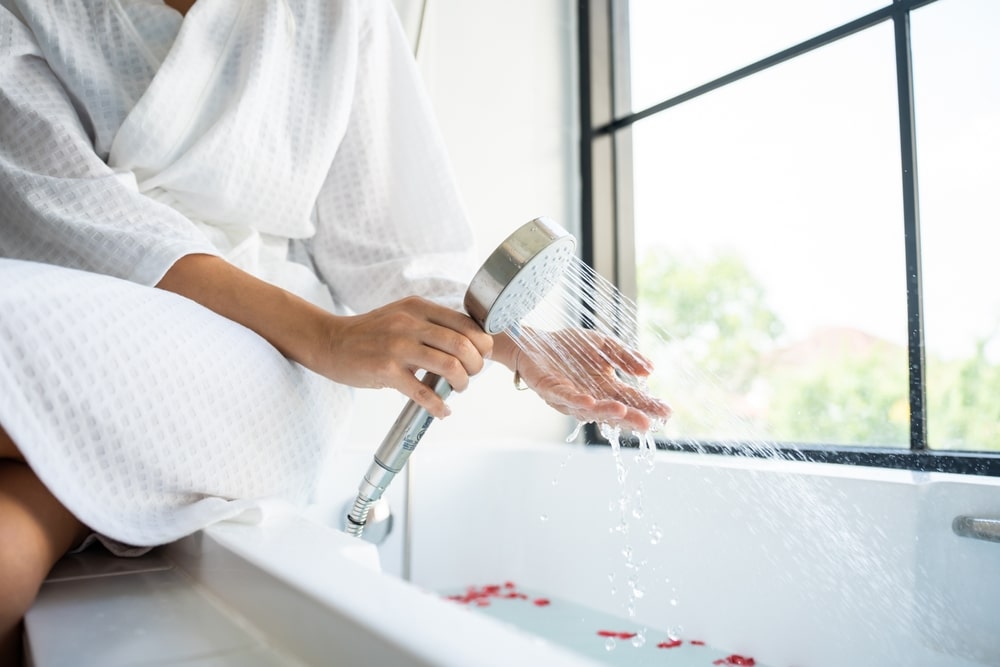There’s nothing quite like stepping under a warm stream of water after a long day, letting the heat melt away tension and fatigue. For many people, that daily shower feels like a small ritual of comfort. But research and dermatologists say that our beloved habit might actually be doing more harm than good — especially when we shower too often.
It turns out that the squeaky-clean feeling we associate with freshness may come at the cost of our skin’s natural defenses.
Human skin isn’t just a surface. It’s a complex, intelligent organ that produces oils to moisturize itself and maintains a delicate ecosystem of beneficial bacteria. These oils form a protective barrier that guards against germs, allergens, and irritation. When we shower too frequently — especially with hot water or harsh soaps — those natural oils disappear.
The result? Dryness, itching, redness, and flaking. As WebMD explains, healthy skin relies on its natural oil layer and its balance of “good” bacteria. Strip away that layer, and micro-cracks can form, making it easier for infections or allergic reactions to take hold.
Temperature also plays a major role. Hot showers feel amazing in the moment, but they can disrupt how the body regulates heat — something especially noticeable in older adults. Hot water causes blood vessels to expand, which can lead to dizziness or drops in blood pressure. Cold showers create the opposite problem, jolting the system and triggering rapid heart rate. People with circulatory issues can be particularly sensitive to these temperature swings. Dermatologists recommend warm water rather than steaming hot, and shorter showers overall.
The scalp suffers the same fate when hair is washed too often. Each wash strips away oils that keep hair strong and flexible. That constant removal can make strands dry or brittle and may even contribute to hair thinning over time. Most dermatologists suggest washing hair two to three times a week unless someone’s lifestyle requires more frequent cleaning. If a scalp feels itchy or hair looks dull, daily shampooing may be the reason.
Over-showering doesn’t just affect the skin and hair — it may also influence the immune system. According to Harvard Health, our bodies rely on exposure to everyday microbes and dirt to build antibodies and long-term immune memory. This idea, known as the hygiene hypothesis, suggests that being too clean can limit the natural development of immune defenses. That’s why many pediatricians now advise against daily baths for children unless absolutely necessary. And adults may also benefit from letting the body interact with the environment instead of scrubbing away every trace of it.
Finding the right balance is key. Hygiene is important, but so is moderation.
For most adults, showering two to three times a week is not only acceptable — it may actually be healthier for the skin and immune system. How often someone needs to bathe depends largely on lifestyle. People who sweat heavily, work outdoors, or engage in physical activity may need more frequent showers, while those who spend most of their time in climate-controlled indoor settings often need far fewer.
Duration matters as well. WebMD recommends keeping showers short — around three to five minutes — and focusing primarily on the areas that need the most attention: the armpits, groin, and face. Unless someone’s been gardening, hiking, or covered in dirt, there’s no need to scrub the entire body every day.
That refreshing, just-showered moment may feel wonderful, but if overdone, it can quietly erode the body’s natural protections. Sometimes, the best thing you can do is simply let your skin and immune system do what they’re designed to do.
Did you know that showering too often can actually be harmful? Share your thoughts — and pass this along to others who might be surprised by it.




0 Comments